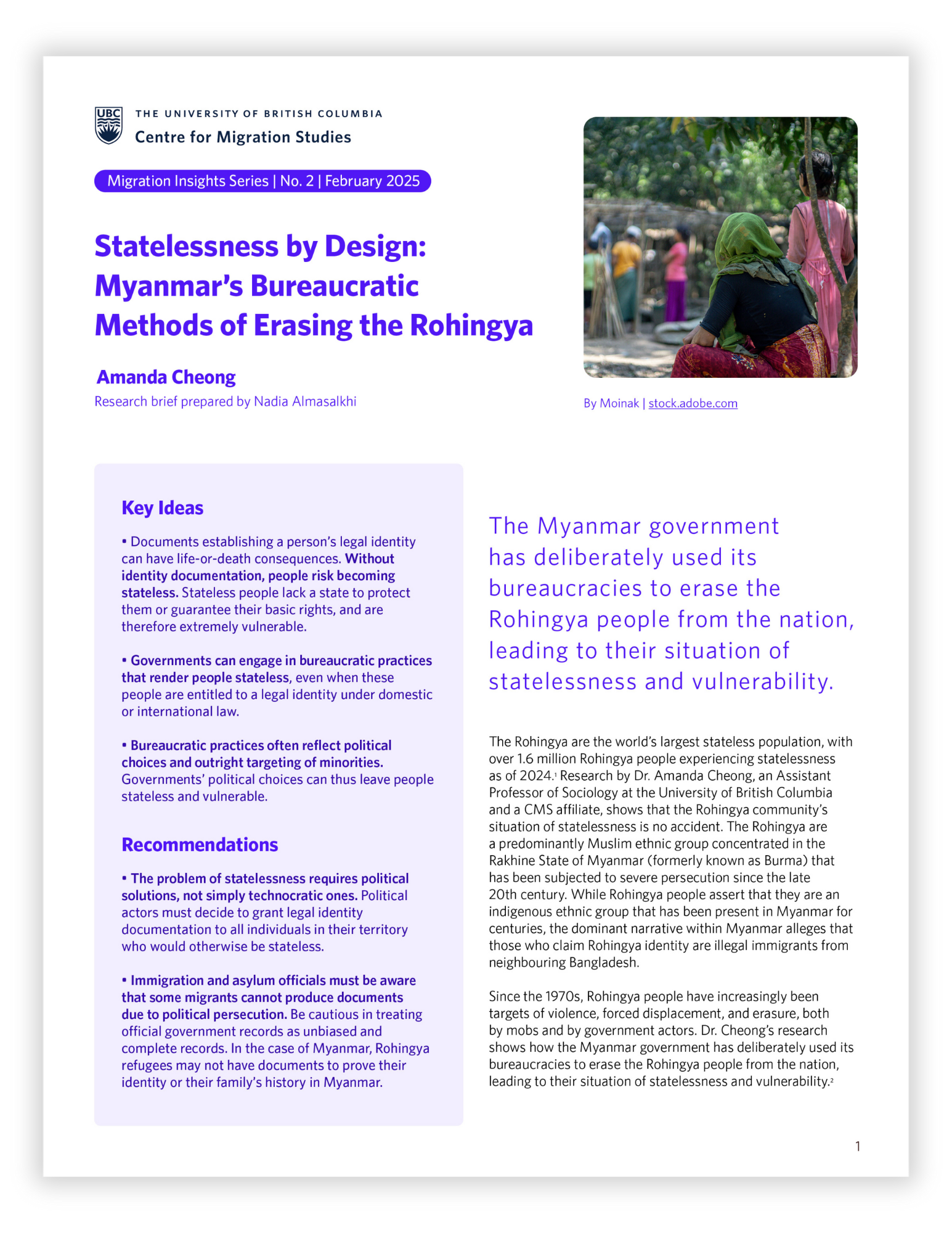Participating in cosmopolitan associations helps newcomers expand local networks, build cross-ethnic friendships, and embrace diversity in daily life, contributing to a sense of belonging and membership in Canada’s multicultural society.
Joining groups is a way for people to meet other members and build connections in their local community. CMS affiliate Dr. Sean Lauer’s research shows how participation in different types of associations shapes Canadian newcomers’ everyday experiences of diversity, impacts the ethnic makeup of their friendship circles, and contributes to newcomers’ settlement and integration in the new country.
“An overlooked part of newcomer experiences includes their involvement with local organizations in Canada. The variety of organizations available, including those that cater to a diversity of backgrounds, interests, and activities, is a key component of the integration experience.”
Key Findings
- Newcomers who join cosmopolitan associations—groups that bring together people from different cultural or ethnic backgrounds—are more likely to make friends with people who do not share their own ethnic background. In fact, 57% of newcomers in these groups had friends from different ethnic backgrounds, compared to only 38% of those who did not join any group.
- Newcomers who join sorting associations—groups made up mostly of people from the same ethnic or cultural background—are the least likely to make friends from other backgrounds. Only 15% of newcomers in these groups formed cross-ethnic friendships.
- The type of association a newcomer joins can affect their friendships and how well they adapt to living in a diverse society. People in cosmopolitan associations are more likely to develop a diverse friendship circle (48%) than those in sorting associations (20%).
Recommendations
- Governments should invest in cosmopolitan organizations by funding social and cultural programs and spaces that bring together people from diverse ethnic backgrounds.
- Cosmopolitan organizations should promote routine, collaborative activities. These activities create a common space to make relationships more personal, allowing for more cross-ethnic friendships.
Implications for Current Events
On July 23, 2025, the Canadian government announced a $3.2 billion investment in local organizations aimed at supporting newcomers’ economic integration. This investment recognizes the vital role of local organizations in equipping newcomers with the skills, training, and opportunities necessary to build their lives here. While this focus on economic integration is essential, it is equally important to support the organizations that foster immigrant social integration—building the community connections that make a new country feel like home.
Dr. Lauer’s research suggests cosmopolitan associations are key to immigrant social integration. Compared to sorting associations that are primarily made up of people from the same ethnic background, cosmopolitan associations bring together people from diverse cultural and ethnic backgrounds. His findings show that newcomers who join cosmopolitan associations are more likely to have cross-ethnic friendships than those who participate in sorting associations or do not join any group at all. These cross-ethnic friendships are crucial for immigrants to embrace diversity and integrate socially in Canada. Governments should invest in cosmopolitan programs and spaces that facilitate cross-ethnic connections and thereby support newcomers’ social integration.
About the Authors
Sean Lauer is a Professor of Sociology at the University of British Columbia. His research uses institutional and network approaches to study immigration, friendship, marriage, and community organizations. He has published widely, including the books Getting Married: The Public Nature of Private Relationships with Carrie Yodanis and Neighbourhood Houses: Building Community in Vancouver with Miu Chung Yan. His current research explores how community spaces and programs help people build social connections. He is studying how friendships, particularly between people of different ethnic backgrounds, develop through involvement in local organizations. He earned his PhD at the University of New Hampshire.
Capri Kong is a PhD student in the Department of Sociology at the University of British Columbia. She holds a BA degree and a Master’s degree from the University of British Columbia. Her current research studies the characteristics and dynamics of friendship networks among first- and second-generation immigrants and their influence on immigrants’ sense of belonging and integration into Canadian society.
Copyright: UBC Centre for Migration Studies
Availability: Web & Print
Publication date: August 21, 2025
Pages: 3
This publication is part of the CMS Migration Insights Series. The research briefs synthesize peer-reviewed, published academic research by CMS affiliates.






